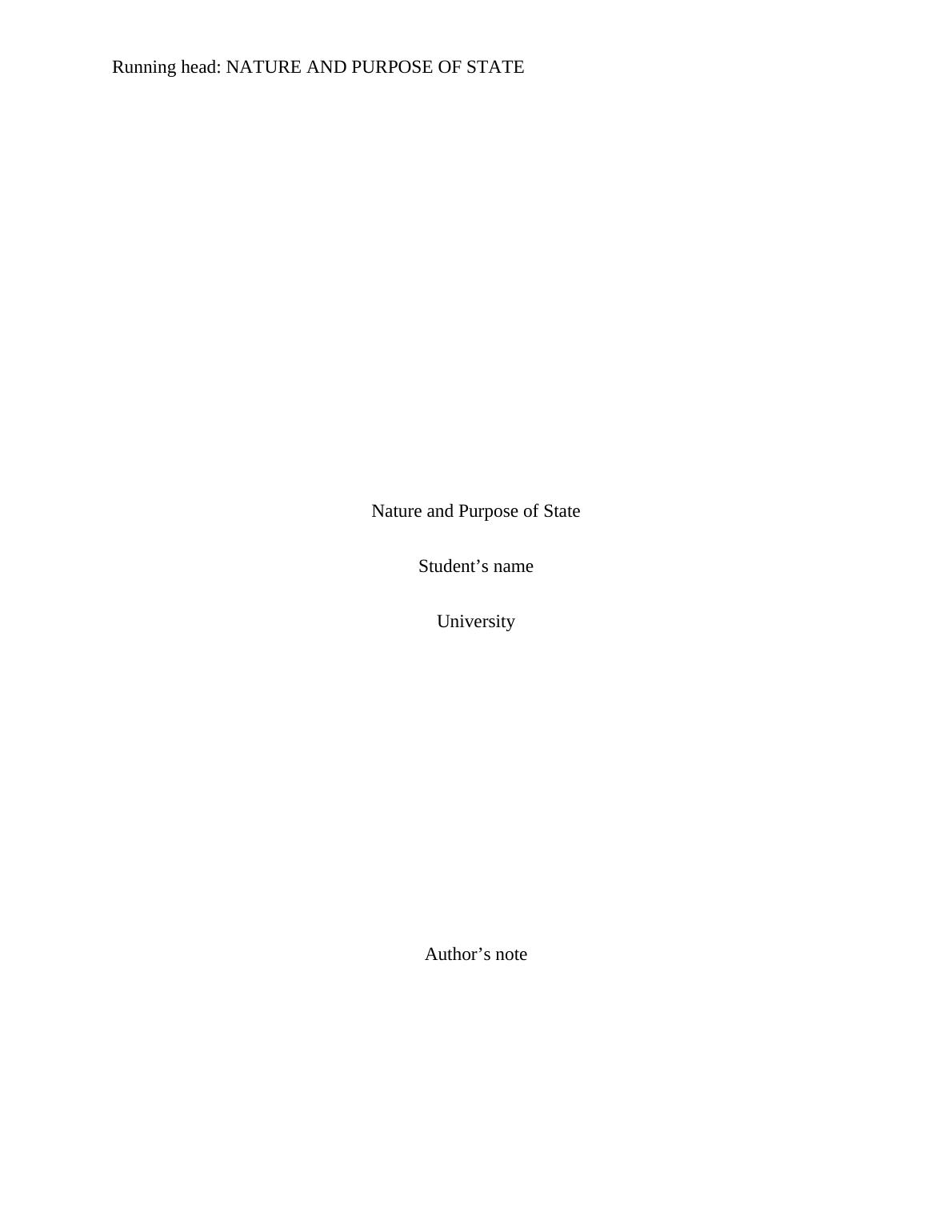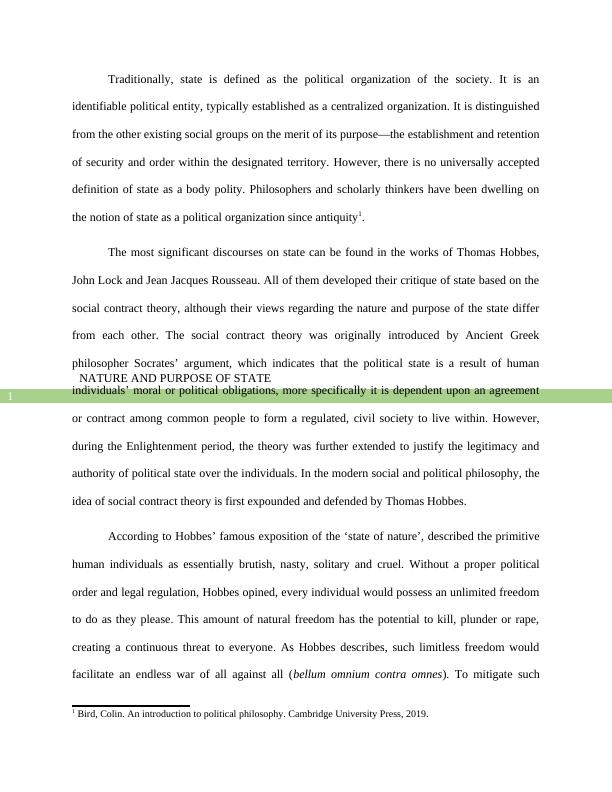Nature and Purpose of State | Political Organization
5 Pages982 Words24 Views
Added on 2022-08-17
Nature and Purpose of State | Political Organization
Added on 2022-08-17
ShareRelated Documents
End of preview
Want to access all the pages? Upload your documents or become a member.
Assignment on Philosophy PDF
|4
|724
|62
Primary Source Analysis of Thomas Hobbes' Leviathan
|6
|1451
|416
Political Liberalism and Enlightenment
|5
|1368
|51
Values of Individualism and Collectivism
|12
|2944
|355
An Analysis of John Locke and Thomas Hobbes Assignment
|5
|1847
|229
Primary Source Analysis
|4
|985
|265


